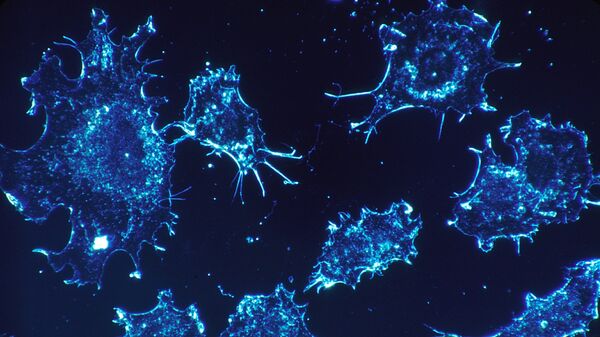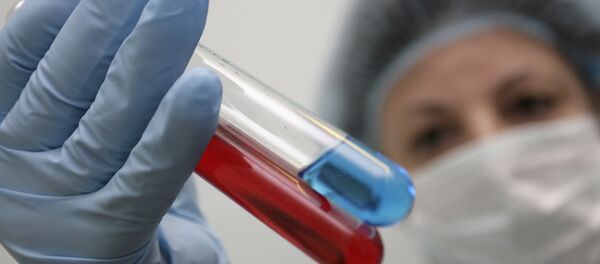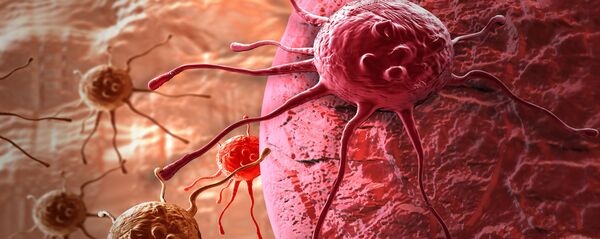Scientists from Moscow State University and their Swedish colleagues successfully suppressed the growth of cancer cells, forcing them to starve and not produce protein for sustenance.
In recent years, scientists have begun to notice that suppressing the "appetite" of cancer cells facilitates the fight against them both from the immune system and from various types of chemo- and immunotherapies.
"It is known that autophagy can be caused by a partial restriction of nutrients. We are interested in the question: What is behind this? We have studied the mechanism of this phenomenon," Boris Zhivotovsky, a professor with the biological faculty at Moscow State University, said.
This allowed for the identification of several dozen sections of DNA and their corresponding proteins, whose activity decreased significantly after Zhivotovsky and his team "put cancer on a diet."
The scientist observed one protein and a gene of the same name, Mcl-1, on which the work of the self-destruct system depends. This system is present in all healthy and in many cancer cells.
In healthy cells, a balance is observed between the "death proteins" and Mcl-1 and other similar molecules that suppress their work. However, when cancer occurs, this balance shifts towards Mcl-1, so the tumor cells do not die even with very serious DNA damage, usually causing them to kill themselves.
”Serum deprivation (SD) sensitizes cancer cells to cell death induced via chemotherapeutic drug cisplatin,” the report read.
Scientists hope the collected data will help adapt this substance and its analogues to fight cancer so that it does not interfere with the synthesis of Mcl-1 in healthy cells and does not lead to their mass demise.




